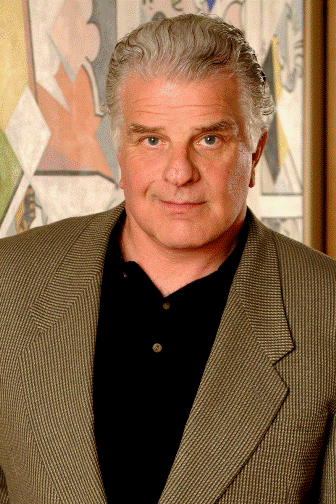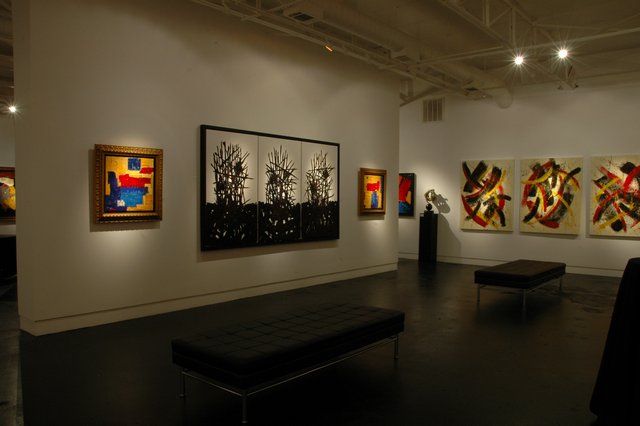LAM: Is Sam, who your concept Nick & Sam’s is named after, a chip off the old block?
PR: He likes the restaurant business. He has little cards printed with his name on it when he greets customers at the front door or when he goes to their table to see how their meal was. He understands he’ll have to start from the ground up, in the kitchen. I teach Sam that he will have responsibilities as he grows older with my One-Third Rule. One third of his earnings go to charity like Hunger Busters. The second third goes to saving and investing and the last third goes to anything he wants. If realizes that with every dollar he wants to spend he has to earn three.
LAM: Speaking of your family, since this is our travel and cuisine issue, where do you like to travel with them?
PR: We love Italy, of course. My favorite is Tuscany. Then Rome, then Florence. I love the theatre in London, and all the galleries and restaurants in France. Before we had Sam, we went around the world in the Concorde.
LAM: I can see why you especially like the restaurants in Italy. Here, why are the restaurants you created experiencing such strong growth and what does it take to be a survivor in today's competitive restaurant industry?
PR: We are indeed experiencing strong growth. It's because the people involved with the business care about the business. I protect customers against a manager's potentially bad decisions. If there is a complaint, I make sure that what happened never happens again. From a consumer standpoint, people are willing to spend money on consistent quality. Regarding competition, it is important to distance oneself from it. Casual dining has gotten blurry among many restaurants to where there is no personality anymore. That's why I like creating different concepts.
LAM: Decor seems to play a big role in your restaurants. How does the decor in your restaurants' success?
PR: If you'll notice closely, few of my restaurants have windows that are readily apparent. I want a restaurant experience to be a vacation of an hour or two for the customer. They want it, too. When Macaroni Grill was created, it was really different than what people had seen before with fresh flowers, concrete floors and is chef-driven. Also, how many bathrooms have Italian lesson tapes in them like we do? We like doing fun things like that. At Nick and Sams, we put a grand piano in middle of the restaurant. With Eatzi's, we deliver wonderful food to people. We approached Il Mulino coming to Dallas with a new approach, too.
LAM: Let's talk about that. Il Mulino in Manhattan is hands down one of the finest restaurants in the world. What inspired you to bring it to Dallas?
PR: It was my own choice and I think Dallas is the perfect choice.The owners who have the restaurant in New York had many offers to take it out of the city. They have as many Texan customers as they do New Yorkers. The challenge with Il Mulino was to make it as good as the original and for the Texan customers to feel at home with it here as they do in the New York location. I knew I had a hit with Il Mulino when I had a waiting list of 6000 reservations before the doors even opened. Speaking of decor, we added more tables. The way the tables are arranged in the original location would never work here. Again, we have very few windows there, too. It has the same food with the same recipes, which people love. We have "jackets only" policy, so that the dining could be more of an experience. The response has been great.
LAM: How do you feel about chefs taking on a rock star status these days?
PR: I like it. If it is done well and professionally, a chef can be famous. He has to become a brand, like his restaurant. To me it helps for the chef to become a part owner in the restaurant he is attached to. If he has a profit stake in it, then he'll be more inclined to stick around to increase its success.
LAM: You are a talented artist, as I look at your artwork around me. What inspires you creatively as you develop more concepts?
PR: Artistically, I am inspired by Pollock and Rothko. I am self taught, too. I think if a person is creative, they can appreciate true creativity. I apply that to what I do. Good taste is important in everything: from color to style to architecture. Everything. I like to be a trendsetter. I look for what I call "point of difference": how can I make something be better and different? I apply this to branding and marketing. I am influenced by what I see in the movies - what makes people attend them, what makes a hit and those films that have high energy. I apply that quest for energy in my restaurant concepts, too
LAM: Speaking of energy, I understand mentoring people in your industry and beyond is important to you.
PR: It is. People change careers often these days. I recommend sticking to it. I've never worked a day in my life because I love what I do. For me, my industry is a hobby. I lecture to college students and try and give them wisdom. I tell them they have to be smart, passionate and have a great deal of energy. I like to teach them about things I have done, not things they shouldn't do.
LAM: You've done so much in your career, including investing in other businesses, like the medical sciences. Tell me about that. It's a long way from food.
PR: Since 1986 I have been involved with a angioplasty device with the University of Texas Health Sciences Center. We sold that and some other products to Johnson & Johnson. Now we are creating obesity-fighting products. It is rewarding to see those results. If I hadn't been a part of those things, there's a chance some lives would not have been saved. For me, it is the intrinsic value that money derives.
LAM: It has been a pleasure to speak with you. One final question: if you could be anyone else or do anything else with your life, what would that be?
PR: I’ve thought about that. I’m perfectly happy with who I am. I don’t want to be anyone else. I sit back and think “why me?” Why all this success? To me, it is a shame to have an ability to do something and for people not to make something of their lives.


